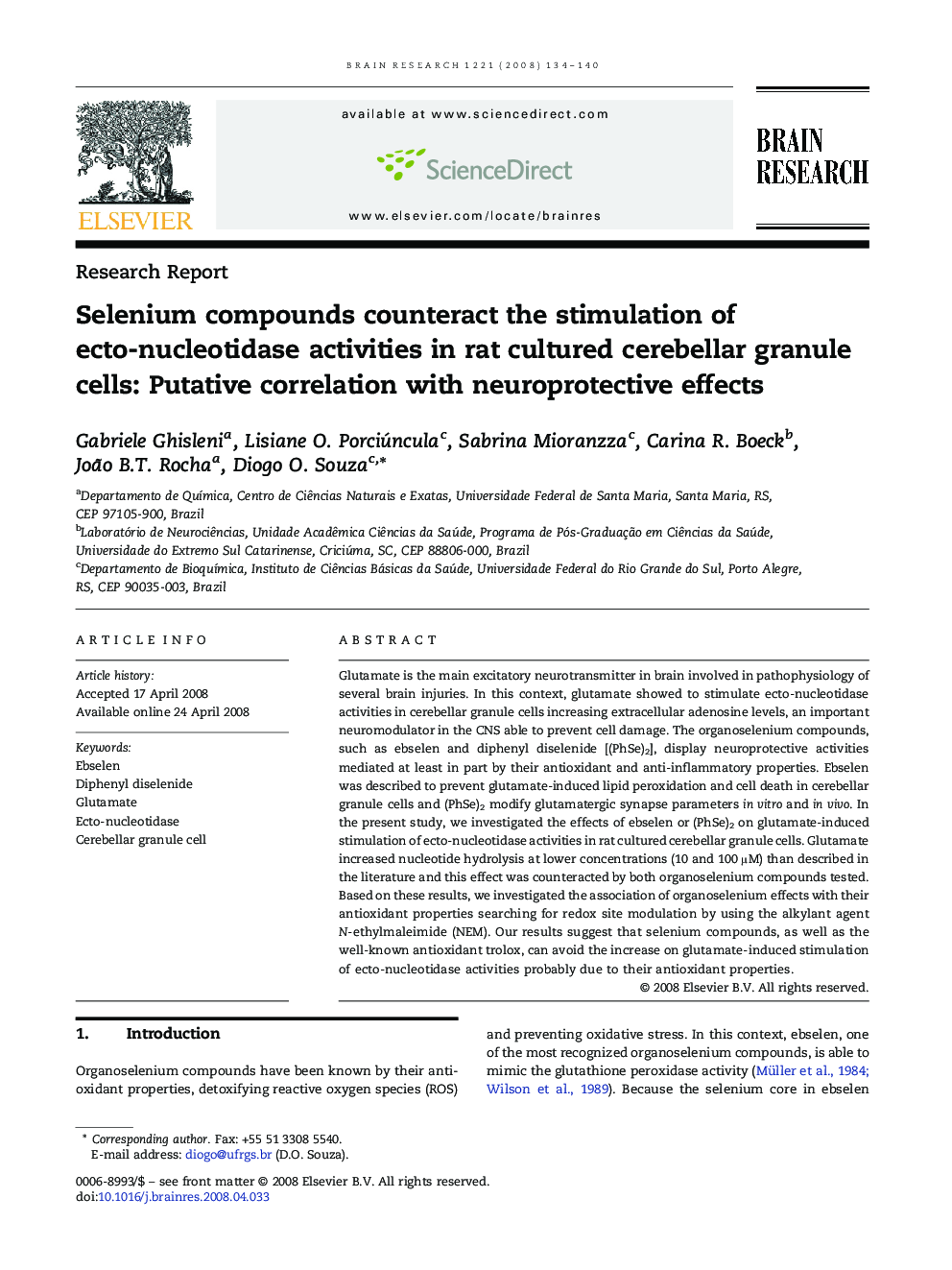| Article ID | Journal | Published Year | Pages | File Type |
|---|---|---|---|---|
| 4329507 | Brain Research | 2008 | 7 Pages |
Glutamate is the main excitatory neurotransmitter in brain involved in pathophysiology of several brain injuries. In this context, glutamate showed to stimulate ecto-nucleotidase activities in cerebellar granule cells increasing extracellular adenosine levels, an important neuromodulator in the CNS able to prevent cell damage. The organoselenium compounds, such as ebselen and diphenyl diselenide [(PhSe)2], display neuroprotective activities mediated at least in part by their antioxidant and anti-inflammatory properties. Ebselen was described to prevent glutamate-induced lipid peroxidation and cell death in cerebellar granule cells and (PhSe)2 modify glutamatergic synapse parameters in vitro and in vivo. In the present study, we investigated the effects of ebselen or (PhSe)2 on glutamate-induced stimulation of ecto-nucleotidase activities in rat cultured cerebellar granule cells. Glutamate increased nucleotide hydrolysis at lower concentrations (10 and 100 µM) than described in the literature and this effect was counteracted by both organoselenium compounds tested. Based on these results, we investigated the association of organoselenium effects with their antioxidant properties searching for redox site modulation by using the alkylant agent N-ethylmaleimide (NEM). Our results suggest that selenium compounds, as well as the well-known antioxidant trolox, can avoid the increase on glutamate-induced stimulation of ecto-nucleotidase activities probably due to their antioxidant properties.
